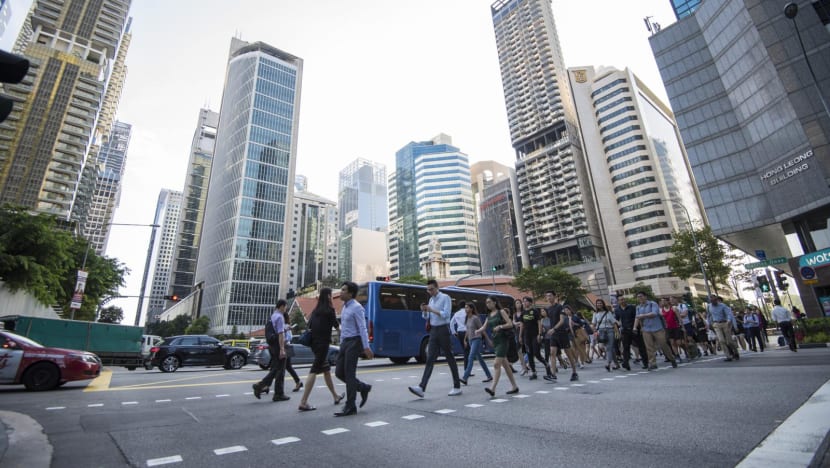Malaysia's Budget 2025: How Does it Concern Each Singaporean?
The economic relationship between Malaysia and Singapore is one of the most dynamic in Southeast Asia. Both nations share a long history of trade, investment, and cultural exchange, making them crucial partners in the ASEAN region.
With Malaysia's recent announcement of its Budget 2025, Singaporeans, whether retirees or working professionals, should pay close attention to the implications of these fiscal policies.
This budget not only affects Malaysians but also has significant ramifications for Singaporeans, especially those who frequently travel across the Causeway or have investments in Malaysia.
Key Changes in Budget 2025
The Malaysian government has outlined several key changes in its Budget 2025. These include an increase in the minimum wage, adjustments to taxes, and a focus on social welfare programmes.
Additionally, there are significant reforms aimed at improving public services and infrastructure development. As Singaporeans navigate these changes, understanding the broader economic context and cross-border dependencies is essential.
Cross-Border Travel Impact
Travel between Malaysia and Singapore is a daily routine for many. The policies introduced in the Budget will directly impact travel costs and convenience.
- Causeway and Second Link Policies: The Malaysian government is expected to enhance cross-border travel efficiency through ongoing projects like the Johor Bahru-Singapore Rapid Transit System (RTS) Link, which aims to reduce congestion significantly.
- Transportation Costs: With rising fuel prices and potential toll adjustments, Singaporean commuters should prepare for increased travel expenses. The budget outlines a targeted subsidy reform for petrol that may affect fuel prices at the pump.
- Public Transportation Developments: Improvements in public transport options are anticipated, making it easier for Singaporeans to travel to Malaysia for work or leisure.
Property Investment Changes
For Singaporeans considering property investments in Malaysia, several changes in real estate policies are noteworthy.
- Foreign Ownership Rules: The Malaysian government continues to encourage foreign investment but has tightened regulations regarding foreign ownership (MMH2) of residential properties. Understanding these rules is crucial for any prospective buyer.
- Property Taxes and Stamp Duty Modifications: Adjustments to property taxes and stamp duties may influence investment decisions. For instance, first-time homebuyers can benefit from tax relief on housing loans.
- Market Outlook: The real estate market is expected to remain robust, driven by increasing demand from both local and foreign buyers.
Daily Expenses Impact
Singaporeans who frequently shop or dine in Malaysia should be aware of how the budget will affect daily expenses.
- Shopping Costs: An expansion of the Sales and Service Tax (SST) could lead to higher prices on non-essential goods starting May 2025.
- Food Prices: With adjustments in subsidies for agriculture, food prices may see fluctuations.
- Healthcare Costs: As healthcare funding increases, Singaporeans might find better medical services when seeking treatment across the border.
Currency and Financial Markets
The exchange rate between the Malaysian Ringgit (MYR) and Singapore Dollar (SGD) will play a crucial role in cross-border transactions.
- Exchange Rate Implications: Changes in economic policies may affect currency stability. Keeping an eye on exchange rates can help Singaporean investors make informed decisions.
- Banking Regulations: New banking regulations could simplify fund transfers between countries, making it easier for Singaporeans to manage their finances across borders.
- Digital Payment Systems: The push towards digital payments will enhance convenience for cross-border shopping and transactions.
Employment Opportunities
For those considering employment or business opportunities in Malaysia:
- Work Permit Policies: Changes to work permit regulations may open new avenues for Singaporeans looking to work or invest in Malaysia.
- Salary Trends: With an increase in minimum wage to RM1,700, there may be upward pressure on salaries across various sectors.
Healthcare Considerations
Healthcare remains a significant concern for many retirees and expatriates.
- Medical Tourism Impact: The budget's focus on improving healthcare facilities may attract more Singaporeans seeking affordable medical care in Malaysia.
- Insurance Coverage: Understanding how changes in healthcare funding affect insurance premiums will be vital for those relying on medical services across the border.
Education Sector
Education is another area where Budget 2025 will have implications:
- International Student Policies: For families considering education options in Malaysia, new policies may facilitate easier access for Singaporean students.
- Cross-Border Programmes: Increased collaboration between educational institutions can provide more opportunities for students from both nations.
Tourism and Leisure
Tourism initiatives outlined in the budget aim to boost travel between Malaysia and Singapore:
- Weekend Getaway Costs: With improvements in infrastructure and tourism promotion, weekend trips may become more appealing and affordable for Singaporeans.
Investment Opportunities
The budget presents various investment avenues:
- Stock Market Implications: Changes in taxation could influence investment strategies for those looking at Malaysian equities.
- Real Estate Investment: With ongoing developments in infrastructure, property investments may yield significant returns over time.
Transportation and Infrastructure
Infrastructure development is central to enhancing connectivity:
- Cross-Border Projects: The RTS Link's completion by December 2026 will significantly ease travel between both nations.
Retail and Consumer Impact
Singaporeans should also consider how retail trends might shift:
- Shopping Trends: Increased taxes on non-essential goods could alter shopping habits among cross-border shoppers.
Future Outlook
Looking ahead, economic projections indicate steady growth:
- Bilateral Relations: Strengthened ties between Malaysia and Singapore promise a conducive environment for trade and investment opportunities.
Action Points for Singaporeans
To navigate these changes effectively:
- Investment Strategies: Consider diversifying investments into Malaysian markets that show growth potential.
- Travel Planning: Stay informed about transportation costs and plan trips accordingly.
- Cost Management: Monitor daily expenses when shopping or dining out in Malaysia to avoid surprises.
Bottom Line
The Malaysian Budget 2025 presents numerous implications for Singaporeans across various sectors. From travel costs to investment opportunities, staying informed will enable individuals to make strategic decisions that align with their personal or business goals.
Understanding these dynamics is essential as both nations continue to strengthen their economic ties. By monitoring key developments closely, Singaporeans can position themselves advantageously within this evolving landscape.
You can now be our community contributor and make a pitch to have your favourite personality be on our show.
Join our community group and drop us your insights on this topic.

-3.png?width=50&name=Square%20(2)-3.png)








Let us know what you think of this post